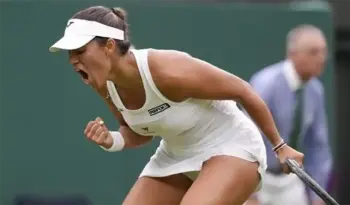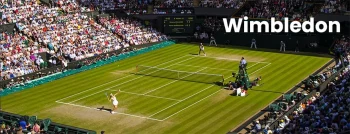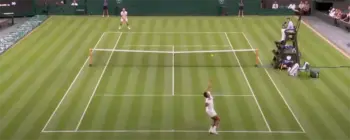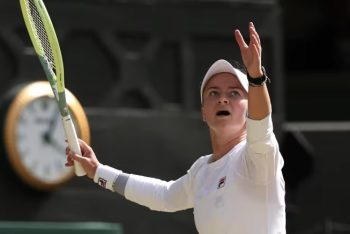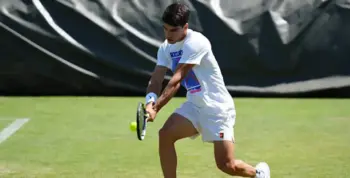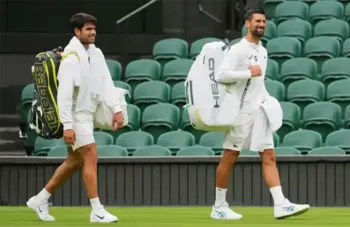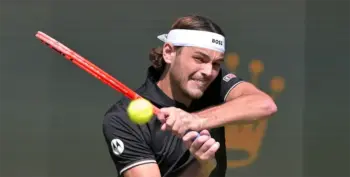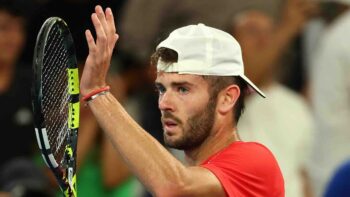I had the pleasure of chatting with Swiss-American ATP pro Alexander Ritschard, who’s working hard to come back from a tricky shoulder injury.
You might remember Alexander from his breakout 2024 season, where he captured three Challenger titles and looked set for a steady rise up the rankings. But, as tennis so often reminds us, nothing is guaranteed, and an unlucky muscle tear put him on the sidelines.
We went deep in this conversation — not just about his comeback, but about the mindset, routines, and tough realities that come with life on the professional tennis circuit.
Growing Up in the Shadow of Federer
Alexander grew up in Switzerland during the golden Federer era, like so many young Swiss players. Unsurprisingly, Roger was a huge inspiration:
“He was always an idol. I think any Swiss player coming up when he was at his peak wanted to play like him, or against him,” Alexander told me.
Even with other talented Swiss names rising up, Federer’s influence is still massive for Swiss tennis.
A Breakthrough Season — and the Lessons Learned
Alexander’s 2024 was impressive: three Challenger titles, loads of confidence, and a breakthrough feeling after years of figuring out his game. Interestingly, he told me his real tennis understanding only clicked around age 27:
“I started really practicing properly, looking into the mental side, nutrition, understanding how I think — all that stuff came together kind of late, but better late than never.”
It’s a reminder that tennis maturity can take time, and Alexander’s honesty about that was refreshing.
The Nutrition and Fitness Puzzle
One of the biggest takeaways from the chat was how Alexander manages his body. With a naturally slim build, he struggled for years with cramping and energy issues. Digging deeper, he realized he simply wasn’t replacing enough carbs and salt during matches — something you only notice under real match stress, not in practice.
He now eats closer to matches, fuels properly during play, and pays more attention to how his body burns energy under stress. That’s the kind of small but vital insight many club players can learn from as well.
The Mental Game and Self-Discovery
Alexander didn’t exactly fall in love with traditional mental coaches — he found his own path instead:
“I never really bought into the whole sitting with a mental coach. For me, it was more about reading books, journaling, discovering what made me tick.”
Books like The Inner Game of Tennis and Flow became powerful tools. He started journaling regularly to get thoughts out of his head, organize plans, and build mental clarity. Simple but effective.
Facing the Chaos of the Tour
We also talked about how brutal and chaotic life on tour can be — ranking points, travel headaches, constant uncertainty. Alexander was honest:
“Pro tennis is chaos. It’s never the same conditions, the same ball, the same opponent. You think you’re in control, but you’re not.”
He spoke openly about how easy it is to blame your gear or your strings when you lose, but in reality, it’s more about accepting the conditions, putting the ego aside, and doing the best you can every week.
Injuries, Comebacks, and Gear Experiments
Alexander’s injury was rare — a muscle tear that compressed a nerve, triggered during a serve in practice. He openly admitted that he probably pushed too hard with too little rest.
During recovery, he even toyed with different racquets to help protect his arm — switching away from his heavy 18×20 Gravity Pro setup to a more forgiving Radical MP 16×19. He described how the change gave him more spin and a lighter feel, better suited for staying healthy long-term.
College Tennis, Family Coaching, and Future Goals
We also explored Alexander’s background in college tennis, where he played for a stacked team that won three national championships. He strongly recommends college tennis for younger players, especially now with NIL money allowing you to build a financial cushion.
On the coaching side, his father still coaches him — a relationship with its ups and downs, but one built on trust and honesty.
Perspective on Rankings and Ego
One of the best parts of the podcast was Alexander’s thoughts on perspective:
“Whether you’re ranked 100 or 1000, it doesn’t define you. That’s just a number. I try to judge people on how they treat others.”
That humble, down-to-earth mindset is inspiring, especially when the tennis world often pushes players to tie their whole identity to a ranking.
What’s Next for Alexander?
Alexander is rehabbing, rebuilding, and aiming to return for the summer swing, maybe at Gstaad, a Swiss home tournament. His shoulder feels better, and he’s cautiously optimistic.
He’s also working with his college fitness coach remotely and balancing training with help from the Swiss federation. His plan is to build strength, get back on court, and start competing again, one match at a time.
Final Thoughts
This was one of my favorite conversations — honest, raw, and a reminder of what tennis is really like for the 99% of pros not living in luxury hotels and flying private jets. Alexander’s perspective on injuries, equipment, rankings, and mental toughness is a goldmine for anyone who loves the sport.
If you want to hear the full interview, check it out on the Tennisnerd Podcast, available on Spotify, Apple, and all major platforms.
Listen now, and don’t forget to play some tennis!





